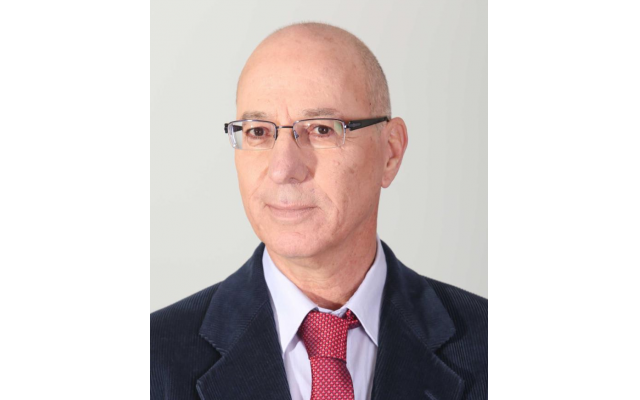CIE to Examine Shared Holy Places
Monthly webinar on sacred spaces continues at Emory University.
The Center for Israel Education will continue its monthly webinar series at 1 p.m. Wednesday, Oct. 10, when Yitzhak Reiter addresses the changing practices within shared holy places in Jerusalem, particularly the Temple Mount compound and the Western Wall.
Reiter, a professor of Islam, Middle East and Israel studies, chairs the Israel studies department and leads the Research Authority at Ashkelon Academic College. He has written 13 books and many articles and is active in track-two diplomacy meetings regarding the Arab-Israeli conflict.
Reiter is a visiting professor this semester at Emory University, the home of the nonprofit CIE.
As a sacred city for the three Abrahamic faiths — Judaism, Christianity and Islam — and a hub of conflicts among religious, ethnic and national groups, especially since 1967, Jerusalem is a perfect laboratory to study the sharing of holy places.
Reiter will speak about the changing practices over the years at the city’s shared sacred spaces, which have seen shifts between dispute and tolerance. He will address stakeholder strategies, conflict management and incentives for peaceful coexistence.
Register for the free webinar at www.centerforisraeled.wufoo.com/forms/k1yk24vp14199va. The webinar will be streamed live at www.israeled.org/live and at www.facebook.com/centerforisraeleducation, then will be archived at the CIE YouTube channel and on the digital resources page of the CIE website (israeled.org/blog/digital-resources).
As with all CIE webinars, Reiter’s presentation will be a valuable opportunity for students, journalists and the general public to learn the history and context behind an important part of Israel’s story. The webinar will include time for the online audience to ask questions.
The October webinar follows CIE President Ken Stein’s live-streamed presentation Sept. 13 to mark the 40th anniversary of the Camp David Accords.
Stein, the author of “Heroic Diplomacy,” a definitive history of the Camp David process, presented the insights gleaned from decades of document-based research, interviews and scholarship, including the recent study of detailed minutes in the Israel State Archives. Those newly-available minutes are far more complete than the comparable U.S. archives and reveal important details about what was discussed and agreed to by Egypt’s Anwar Sadat, Israel’s Menachem Begin and U.S. President Jimmy Carter.
“What’s most fascinating is to see the discussions that go on within the Israeli delegations about what it is they want to communicate to Carter and what they want Carter and the Americans to take away from their discussions vis-a-vis the accords,” Stein says in the video.

During the 48-minute webinar, also archived as a podcast, Stein explains how Sadat and Begin came to sign the accords Sept. 17, 1978, and a peace treaty the next spring after 13 days of negotiations led by Carter.
Stein tells why the essential man for the deal was Sadat, who likely didn’t realize he was risking his life to make peace, and how Carter and Begin clashed in ways that had enduring effects on the U.S.-Israel relationship.
Stein also examines what the agreement did and did not include, how the Palestinians were nudged aside, who were the key players, aside from the three heads of state, and why it took 15 years, another war, the First Intifada and first accord under the Oslo process for Israel to achieve its next treaty with a neighbor (Jordan).




comments